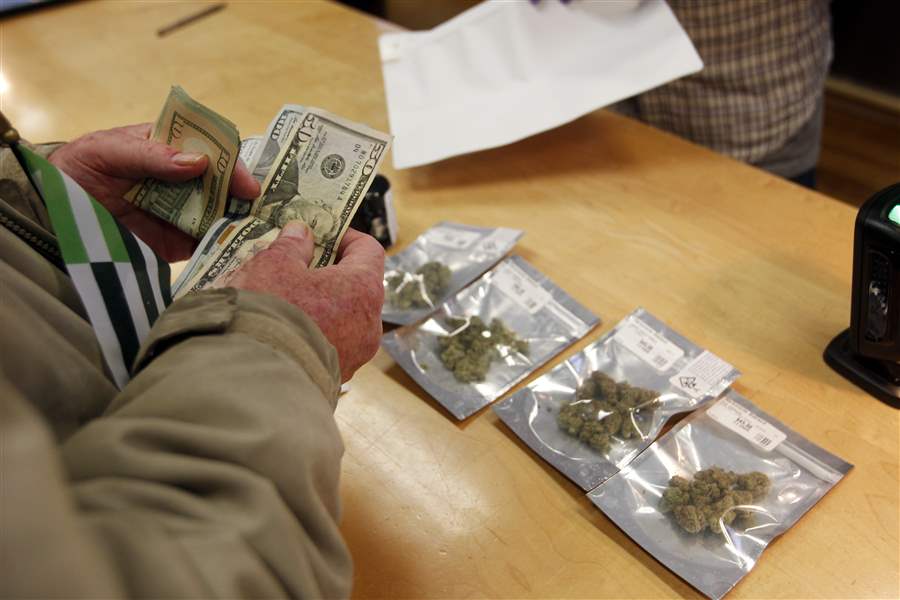
EDITORIAL
Congress must settle marijuana issue
1/9/2018

A customer purchases marijuana at Harborside marijuana dispensary on Jan. 1 in Oakland, Calif. Starting New Year's Day, recreational marijuana can be sold legally in California.
ASSOCIATED PRESS
Attorney General Jeff Sessions’ recent decision to roll back an Obama administration directive on marijuana prosecutions has reshaped the battlefield in the war on drugs. It forces Congress to settle the matter once and for all.
Mr. Sessions’ move is a distraction from the fight against the opioid epidemic, though it is a recognition that the executive branch does not have the right to enforce the law selectively.
Click here to view more Blade editorials | Check out the Behind The Editorial series
Now Congress must do its job and address the differences in state and federal marijuana laws.
On Jan. 4, Mr. Sessions said that prosecutors should no longer adhere to a Barack Obama directive that encouraged them to decline prosecutions of regulated marijuana dispensaries.
Cannabis is illegal under federal law, classified on the same level as heroin, ecstasy, and cocaine under the Controlled Substances Act of 1972. But more than half the states allow medical marijuana and eight states and the District of Colombia allow recreational use of the drug.
An anti-pot prosecutor in California, with the full blessing of the federal government, would arguably be within his right to shut down a dispensary in that state, even though voters have legalized recreational and medicinal pot use.
The current contradiction raises the possibility of standoffs between federal and local officials. Yet the American electorate overwhelmingly favors the legalization of marijuana. In the latest Gallup poll, 64 percent support legalization. And there is little serious debate that it should be legal for medical use, especially among cancer victims and their families.
Legalization has already had a profound impact on the economies of several states. In 2016, Colorado generated about $1.3 billion in marijuana sales, resulting in more than $150 million in taxes. Those numbers are likely to be minuscule compared to California, which began selling marijuana for recreational use at the beginning of this month.
In 2016, there were more than 64,000 drug overdose deaths. The final numbers from 2017 will be even higher. The surge is tied to heroin and fentanyl, not marijuana. The focus must be kept on the drugs that are killing Americans.
Congress needs to take up the marijuana issue and either completely decriminalize it or turn the issue of legalization over to the states.